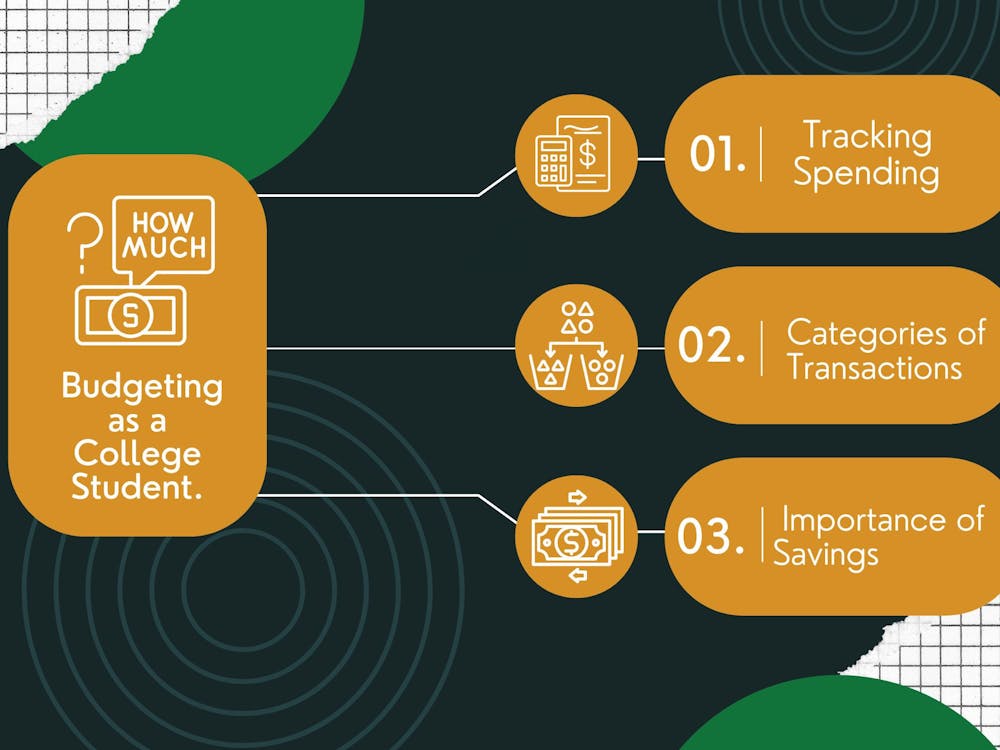It’s a Thursday night and you’ve just gotten out of class. You're hungry and want to grab some dinner with your friends. So what do you do? Text them, obviously.
With every new app release the number of things you can potentially do on your phone gets bigger, but the development of more forms of nonverbal communication has meant that for many people, picking up the phone and calling someone has become a thing of the past.
Many students on campus rely on texting as a primary source of communication, reflecting a nationwide trend: A 2014 Gallup poll reported that 68 percent of 18-to 29-year-olds said they texted “a lot” the day before.
This phenomenon has led to the prevalence of “phone phobia,” which occurs when people try to avoid phone calls or are hesitant to make those calls. They may see a call coming in and purposely screen it, or resort to using virtual platforms as their primary mode of communication.
Communicating via text, emails and social media can be preferable for some students because it allows them to hand-craft what they are going to say, whereas talking on the phone can be unpredictable. Brittnee Yee, a sophomore mechanical engineering major, is in this camp.
“I prefer texting because I can avoid awkward situations,” Yee said. “You can text almost anywhere and get a direct response.”
Peter Rachor, the director of the Center for Entrepreneurship, has noted the change in the communication patterns of students and fears that it means they are losing out on potential opportunities.
“(Phone phobia) affects students’ ability to connect to all the resources that may be available to them,” Rachor said.
Phones still play a key role in communication today, especially in business. In a fast-paced environment, being comfortable talking on the phone is still a highly valued skill and can facilitate networking and making essential connections.
“Quite a lot of business contacts still take place over the phone,” Rachor said “Many times you will have a (professional) relationship with people you will never meet.”
However, being comfortable on the phone is not just a skill for business majors. Max Kalchthaler is a career and program adviser at UP, and stresses that having good phone skills can be beneficial to everyone regardless of major, especially for students looking for a job.
“Being able to work in a professional environment where you are able to use the phone sets you apart from other candidates who would need additional support,” Kalchthaler said.
Kalchthaler said he believes that the phone is a fluid medium, which is some cases, can be more efficient than email. Communication over the phone allows you to expand your conversation, whereas email or texting is tailored for static conversations.
Flowing conversation is the heart of the Telephone Outreach Program (TOP). The program connects students with alumni, parents and other friends of the University and encourages them to donate to the University of Portland Fund. Junior business major Michael Shively works as a TOP caller on campus.
“Basically you help people reminisce and talk about their favorite parts of UP,” Shively said. “And if they (donate) at the end that’s a separate thing. Our main job is to build connections.”
Aspiring TOP employees have to do a phone interview to get the job, so they must be somewhat comfortable on the phone to begin with, though over time their communication skills improve even more. Junior math major Sarah Aker has been working as a TOP caller since her freshman year, and said that she has come a long way since then.
“I used to talk really fast, but now I am better at talking (at a more normal pace),” Aker said. “Just being on the phone a lot for work is good practice.”
When overcoming the fear of getting on the phone remember: Practice makes perfect. Instead of sending an email to the registrar’s office, call them. The next time you make plans with your friends, try to avoid texting. The Career Center is also a great resource where you can practice a mock phone interview without feeling the pressure of making mistakes.
It’s also important to remember that there is always a living, breathing person on the other line. When you pick up the phone, whoever’s on the other end isn’t trying to get you to mess up — in most cases, they just want to talk.
“It’s the same as a normal conversation,” Shively said. “Just be a nice (person) in your everyday life, learn how to engage with people, and phone skills will be easy.”
So the next time that unknown number calls, don’t be afraid to pick up — it’s for your own good.
Alana Laanui is a reporter for The Beacon. She can be reached at laanui18@up.edu or on Twitter @AlanaLaanui.








